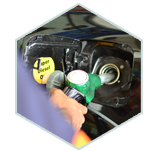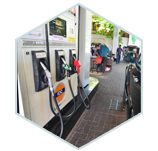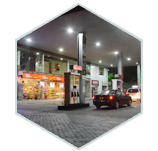Monthly Archives: August 2014
The Chairman of Lanka IOC Plc (LIOC), Makrand Nene says it is of great importance that the Sri Lanka Government evolves a transparent pricing system for fuels which would not only benefit the public but would also pave way for systematic infrastructure development in the energy sector. According to the LIOC management, there remains minimal correlation of local prices to International world market prices, which exposes the industry to an acute risk of incurring significant financial losses due to sudden price fluctuations. Hence, they say there is a need for greater transparency in the formulation of a method to correlate to global prices.
Addressing shareholders at the release of the company’s Annual Report for the year March 31, 2014, the LIOC Chairman Nene said that 2013/2014 had been the most successful financial year to date, as the firm continued to grow in its second decade of operations as the second and only other player in the Sri Lankan petroleum sector next to Ceylon Petroleum Corporation (CEYPETCO).
“With the Ceylon Petroleum Corporation having finally increased their diesel selling price in line with Lanka IOC in February 2013, our retail sales of diesel grew by 41% in quantity and 46% in value this financial year,” Nene announced adding that the company has achieved Rs.81.79 billion in sales, up 9% from Rs.75.11 billion recorded in the previous year.
Lanka IOC Plc has thus recorded a profit after tax of Rs.4.8 billion for the financial year, up from Rs.2.9 billion reported in the corresponding period of the previous year.
Domestic revenue for the year has increased by Rs.11.95 billion, which is a 20.9% growth from the previous year with the largest contribution from diesel sales which increased by 53%. Petrol revenue only grew by 8% but it contributed 40% of the total revenue, financials showed.
Meanwhile, Managing Director Subodh Dakwale said LIOC continued to expand its retail sector in 2013/14, opening ten new outlets in locations where fuel filling stations were most needed, increasing its number of filling stations to 147 and refurbishing a number of existing stations.
“In 2014/15, however we plan to kick start our expansion drive by opening over forty new outlets and refurbishing a further fifty. We plan to spread our footprint across the country in a major way, by increasing our presence in the unrepresented areas of the island nation,” he announced.
LIOC said in the financial year 2013/2014, fuel products had continued to be their highest profit center, garnering 75% of the total profit and accounting for 73% of the total turnover. Sales of petrol grew by 3% in 2013/14 to over 200,000 kiloliters while with price parity finally being reached, diesel sales grew by an incredible 41% to over 222,000 kiloliters.
On the corporate end, LIOC said acquisition of the business during the period under review to supply lubricant products to the Sri Lanka Transport Board can be counted upon as a major achievement.
In the year 2013, although value of total oil imported into Sri Lanka grew up to Rs.182 billion from Rs.157 billion in 2012, the value of refined products imported reduced to Rs.353 billion from Rs.467 billion. Nonetheless, the oil prices remained unchanged within the year and sales of petrol grew by 4% and diesel grew by 2%.






